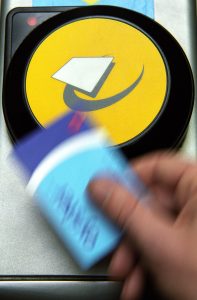Bus wars could be consigned to history
The Competition Commission is a black box that sucks masses of data and information in but what’s going to come out of it you don’t know until the lid suddenly opens. Or half opens in the case of the interim report. And the interim report is paradoxically both more and less radical than might have been reasonably anticipated. First things first. The CC, in an understated but definitive way, says there is a problem with the market and that profits are higher than there would be if the market was working properly. However the CC firmly eschewed the options of divestment or seeking to trigger the spectacle of bus wars on the streets. This is the kind of competition that traditionally would have sent the OFT and CC home from the office at night with a smile on the face and a song in their heart. Happy that all was now well in the world as perfect consumers could delight in making sophisticated judgements on which service to choose as they glumly stood in the rain at their bus stops waiting to get home. This is highly significant as a free market red in tooth and claw was what the 1985 Act was all about. Goodbye to all that. But just because they have rejected what was their default response in the past, that’s not to say there isn’t a problem to be solved. In a definitive and understated way the CC is very clear that there is a problem with the bus market – and that profits are higher than they would be if the market was working properly. Instead of short term bus wars what it wants to see is a more civilised and structured format for competition. In large urban areas this could well mean franchising. If not franchising then there should be more gentlemanly competition for markets. It should take place within the framework of attractive multi-operator fares and without the aggressive or defensive flooding of key routes with excess services, or sudden fares reductions. The Traffic Commissioners are identified as those that would oversee this squeaky clean competitive environment. But this seems highly unlikely given the retrenchment of the Traffic Commissioners recently in favour of VOSA, as well as the mismatch between the TC’s traditional focus on safety and performance rather than the tricky and localised issues around what’s fair competition and what isn’t. So if it’s not the Traffic Commissioners then is there a role for Local Transport Authorities, or some form of independent regulation, in moderating competition? Deep waters for the Competition Authorities – but then again the logical outcome of their own findings and the objectives they’ve said they want to achieve.

The future is smart and integrated
A further significant aspect of the report is that it offers the opportunity to build on the three ways to improved bus services offered by the Local Transport Act 2008: more comprehensive and effective voluntary partnerships, statutory quality partnerships and quality contracts. Unless there’s a big change in the final report the idea of scrapping key sections of the Act – in particular the provisions on quality contracts – looks to be closed off. That’s good news as it creates stability, and in my view, the Local Transport Act 2008 was about 75% there in making the voluntary partnership, SQP and QC options fully effective. The way the interim report is going leaves a lot of options for Norman Baker to build on the Local Transport Act 2008 to craft a new bus policy that knocks the rough edges off some of the detail of the legislation, that focuses on key objectives (not least of which is simpler, smarter ticketing) and uses BSOG to incentivise those outcomes. There’s a big opportunity here for everyone to move on and accept that the future is about a more structured format for competition in the bus market; where smart and integrated is central to what public transport is providing; and where the three options in the Local Transport Act are the ways to achieve these outcomes (depending on local circumstances). But given some of the boorish condescension that is being directed at the CC via the bus press, it looks like the past can be a more comforting place to be!
Jonathan Bray
This article was originally published in Coach and Bus Week.